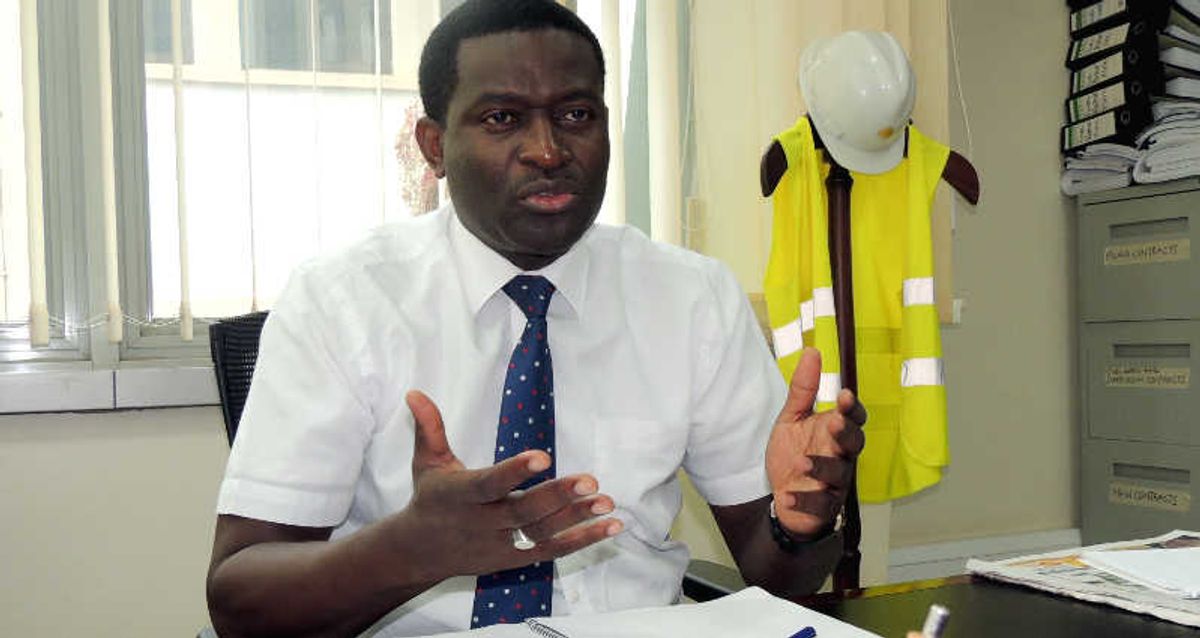
“We’ve helped all the 14 municipal councils to do develop revenue databases – indicating which properties or businesses can pay how much in tax.”

USMID Eng.Isaac Mutenyo
The decision by Kampala Capital City Authority (KCCA) to enforce the collection of property tax on commercial buildings across its area of jurisdiction is one of the new steps the city authority has adopted in order to increase its chances of obtaining big money for infrastructure projects.
Currently KCCA is leaving no stone unturned in its effort to ensure that land lords remit 6% of the money they receive from tenants. A few other municipalities including Kira are enforcing the rental tax.
Now, findings by The Sunrise reveal that the trend is likely to expand to several other municipalities across the country as urban local authorities seek to strike two birds with one stone; raise more tax revenue and improve their credit-worthiness to be able to obtain big loans from lending institutions.
The Sunrise has learnt that a project funded by a US$150m World Bank loan to the government of Uganda, has enabled 14 major municipalities in Uganda to gather information on all private properties under their geographical coverage and assess the potential taxes they can generate.
The Uganda Support for Municipal Infrastructure Development (USMID) which is in its last months of work has given municipalities the new capacity by educating leaders and technocrats in those local governments on how they can improve their poor credit record at the moment.
Better Information
Eng. Isaac Mutenyo, the Coordinator, USMID says: “One of the things we do is to support municipal councils to raise their own revenue. We’ve helped all the 14 municipal councils to do develop revenue databases – indicating which properties or businesses can pay how much in tax. The registers are updated every year.”
Armed with such information, Mutenyo argues that municipalities will be able to collect money or approach banks for bigger and longer-term loans. By moving to enforce the property tax, KCCA is perhaps demonstrating that it would be able to service a bond.
Mutenyo revealed the World Bank could soon extend a municipal loan to KCCA.
“I think they are starting with KCCA. If a municipal council shows evidence that it has a certain level of revenue stream, and that they show that they can collect a certain amount of revenue, and that they can manage their finances very well, then lenders would be able to give them money.”
But before the local government institutions can take up loans, they will have to secure the backing of the central government which will guarantee the loans in case they fail to repay.
Although KCCA was not part of USMID, a separate but similar loan project worth US$175m was extended by the World Bank to the city authority and has helped them to put their house in order so that they are able to issue what is technically called a municipal bond.
A municipal bond is a fixed-interest loan to a municipality. It is a common tool used by urban authorities in many countries in order to obtain lump-sum amounts of money to implement capital intensive development projects.
The Sunrise has understood that the World Bank under its Creditworthiness Academy, has been training staff from several urban centres including KCCA with the view to increasing their chances of accessing funds from institutional investors.
Although laws that empower municipalities to collect ground or property tax have been in existence for years, lack of accurate information on the taxable properties and rates has been non-existence and therefore frustrated enforcement. The USMID programme, according to Mutenyo, has largely filled this information gap.
“All our municipalities have updated property registers,” said Mutenyo said in an interview with The Sunrise on the achievements and challenges of the five-year programme set to end this year.
“Municipal governments need big money to do these [major development] projects. We have talked to the World Bank to help in this area and they have showed readiness to help,” He said.
True to its name, the USMID project focused on infrastructure development and helped build roads, taxi parks and bus terminals across the 14 major towns of Uganda. But in order to ensure that the municipalities are able to maintain the social infrastructure, they’ve been trained and encouraged to introduce property taxes as a way to ensure sustainability in the delivery of urban services.
In specific reference to the World Bank, Mutenyo stressed that the global lender sets other pre-conditions such as a sound environmental and social protection policy, before it can consider lending.
But he emphasized that boosting local revenue collection from markets and transportation hubs will be more important than ever before, if municipal authorities have any chance of tapping into big money from lenders.
The decision to introduce property tax in the next financial year has triggered mixed reactions from the public.
Many people have argued that paying tax would not be a problem, but the abuse of public resources by those in government discourages them from paying.
Stephen Bwanika, a teacher in one of the major secondary schools in Mukono noted that besides the services of keeping law and order by the police in his area, he views
higher taxes as a needless extra burden he would like to avoid.
Other observers have blamed mixing politics with development which they say exempts certain groups of people from paying taxes hence an unfair tax regime.
“Why should I pay more tax when boda bodas which cause the most number of accidents and take the biggest chunk of Mulago’s surgery budget, are exempted from taxation?” asked Bwanika.
Other observers also argue that the tendency by government to weaken municipal authorities in order to ensure that they continue to beg from the central government remains a major obstacle in the revival self-sustaining municipalities in Uganda.














Henry Lutaaya
Leave a Comment
Your email address will not be published.